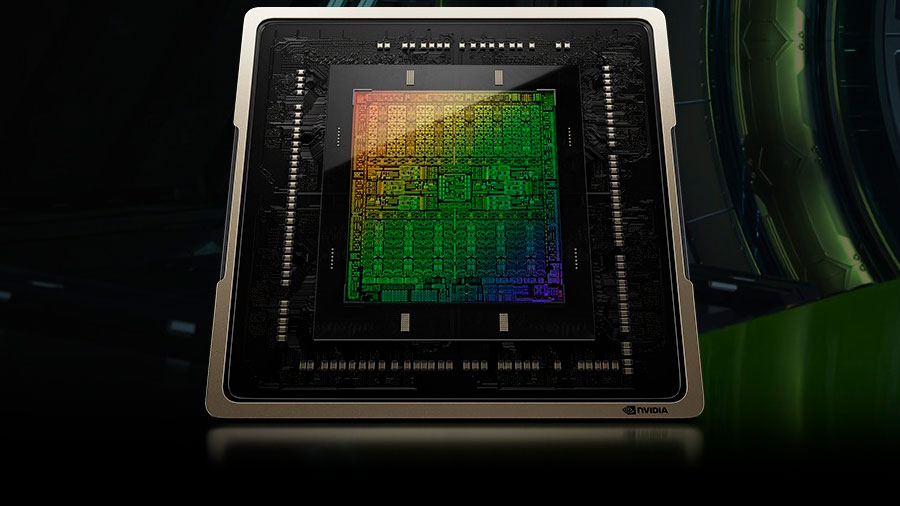RTX 4070 Ti Super is right on the RTX 4080's tail — new OpenCL and Vulkan benchmarks show less than a 10% margin between them

Nvidia's GeForce RTX 4070 Ti Super will arrive on January 24 at $799 to challenge the best graphics cards. But before we get there, hardware sleuth Benchleaks has uncovered several benchmarks showing us how the GeForce RTX 4070 Ti Super stacks against the competition. Of course, treat these results with a fair bit of speculative salt, because clearly these cards weren't all tested in the same system with the same drivers. Plus, Geekbench 6 isn't exactly the best way to discern graphics performance, so you won't find it included in our GPU benchmarks hierarchy. Still, as an early indication of how these cards stack up against each other, we'll take what we can get while we wait for full results next week.
The GeForce RTX 4070 Ti Super product page has a few Nvidia-provided benchmarks, but the chipmaker compared it to the last-generation RTX 3070 Ti and older RTX 2070 Super. From what we've seen, the GeForce RTX 4070 Ti Super may offer 10~15% higher performance than the GeForce RTX 4070 Ti, and may lag behind the GeForce RTX 4080 by 5~10%. Although the OpenCL and Vulkan tests from Geekbench 6 do not indicate real-world gaming performance, they could still provide a preview of performance margins between Nvidia's GeForce RTX 4070 family members.
According to Geekbench 6's database, the GeForce RTX 4080 delivered 5% higher OpenCL performance than the RTX 4070 Ti Super (229,043). However, the 4070 Ti Super (222,435) seemingly outperformed the 4080 by 7% in the Vulkan test. Compared to the 4070 Ti, the 4070 Ti Super was 11% and 26% ahead in OpenCL and Vulkan scores, respectively.
GeForce RTX 4070 Ti Super Benchmarks
| Graphics Card | OpenCL Performance | Vulkan Performance |
|---|---|---|
| GeForce RTX 4080 | 240,076 | 208,667 |
| GeForce RTX 4070 Ti Super | 229,043 | 222,435 |
| GeForce RTX 4070 Ti | 206,564 | 176,558 |
| Radeon RX 7900 XTX | 202,205 | 229,185 |
The RTX 4070 Ti Super was up to 13% faster than the Radeon RX 7900 XTX in OpenCL performance. However, the Vulkan performance difference was minimal between the two rivals. The Radeon RX 7900 XTX was only 3% better than the RTX 4070 Ti Super in the Vulkan test.
Keep in mind that the scores for most GPUs are an aggregate of potentially many, many runs, whereas these early results from the 4070 Ti Super only use a handful of runs. There are driver differences as well, and clearly Vulkan (at least on the provided result) saw a massive jump in performance.
Nvidia's betting on the RTX 4070 Ti Super to compete with AMD's RX 7900-series graphics cards. The chipmaker is phasing out the vanilla RTX 4070 Ti, as the RTX 4070 Ti Super variant will replace it at $799. In response to Nvidia's RTX 40 Super launch, AMD has started a promotional pricing program to bring down the cost of some of its Radeon RX 7900-series SKUs. As this is a promotion, AMD isn't technically slashing the MSRP, and we'll have to see how pricing holds up over time.
AMD has pushed the price tag of the Radeon RX 7900 XT down to $749 and the Radeon RX 7900 GRE to $549; the two RDNA 3 graphics cards launched at $899 and $649, respectively. It would seem that AMD still has enough confidence in the Radeon RX 7900 XTX, as the flagship card isn't included in in the new promotional pricing.
Although we haven't seen real-world benchmarks for the RTX 4070 Ti Super, the Ada Lovelace-based graphics card is unlikely to catch up to the RX 7900 XTX in rasterization. However, the RTX 4070 Ti was already very close to the RX 7900 XT, so the Super treatment will likely narrow that gap even more and potentially even put the 4070 Ti Super on the same level as the RX 7900 XT.
Get Tom's Hardware's best news and in-depth reviews, straight to your inbox.

Zhiye Liu is a news editor, memory reviewer, and SSD tester at Tom’s Hardware. Although he loves everything that’s hardware, he has a soft spot for CPUs, GPUs, and RAM.
-
Avro Arrow We'll see how this pans out in gaming scenarios because, while promising, OpenCL and Vulkan benchmarks are no more reliable than 3DMark or Unigine. They give an idea, but not the whole truth.Reply
If this is true, then the RTX 4080 Super will be DOA, even at the freshly-lowered price of $1000. This is good for consumers though because it will force Radeon prices even further down so, if true, this is some pretty good news! :giggle: